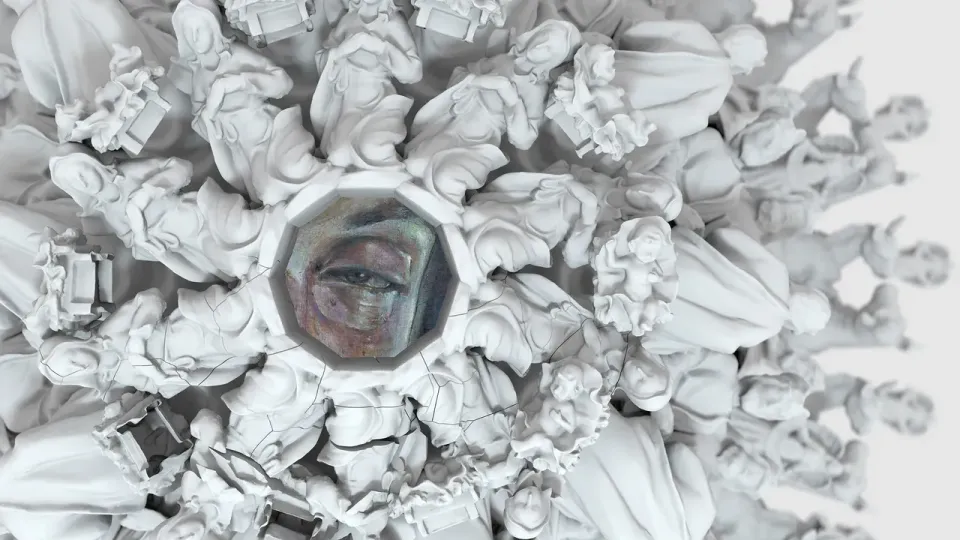Manger on McNichols

In the opening track “Medusa,” Boldy James introduces us to a word thats an essential part of the album : ConCreatures— “Convicted Creatures.” It’s more than just a clever phrase. It’s a label worn by those who’ve had to harden their hearts just to survive in Detroit. Once called “The Promised Land,” the city has become something else entirely—many have left, others have died, and the ones still here are just trying to hold on. Some keep searching for jobs. Others stand on the corner, accepting the hand they’ve been dealt. Boldy tries to walk the right path, especially with a child on the way. But as a convict, doors slam shut in his face. Society won’t let him forget who he was—even though he’s trying to become someone better.
In “Welcome to 76,” Boldy paints 76th Street not as a block, but as a jungle. He likens himself and others to monsters—ConCreatures—stripped of their innocence by a world that never gave them a fair shot.
“Pressing H up in the streets that robbed me / Of my innocence and my childhood dreams.
It’s not just survival—it’s survival against all odds. The world he’s describing doesn’t leave room for dreams. So you do what you must. “Detroit River Rock” reads like a survival guide—how to move, how to live, how to protect yourself in a place where life is fragile and tomorrow isn’t promised.
But beneath the hardened shell, there’s deep pain. PTSD. Paranoia. Every day feels like a war, not just for himself, but for the people he loves.
Then, in “Middle of the Month,” Boldy reaches a breaking point. He’s lashing out, raw and wounded. He’s lost his twins —the very ones he was fighting to build a better life for. It wasn’t just grief; it was soul-shattering. They were supposed to be his first. Now, the world is red, and revenge clouds everything. Boldy is back to the same jungle he was speaking of.
“Somebody gotta die.”
In “The Safe,” that coldness takes over. It’s Christmas Eve. A wife is murdered. A gun is pulled. The safe is emptied. There’s no warmth, no joy, only darkness. It’s the kind of pain that numbs you until nothing matters.
But then comes “Mommy Dearest,” and everything changes. The mask slips. Boldy opens up, not as a street figure, but as a son. A boy who wanted love. A child who felt distance in his mother’s eyes, maybe because of who he became. He says:
“I think my mommy wished she had an abortion.”
It’s one of the rawest lines on the album. And yet, it’s not bitter—it’s a cry for empathy. He speaks about, how the streets stole his childhood. The Christmas gifts taken, the warmth replaced by cold. The pain shaped him. But in the same breath, he reveals how deeply he loves. Not in the way most understand—but in the way he was taught: protect those you love at any cost, even if that means becoming the monster others fear.
Throughout the album, Boldy holds nothing back. He tells the truth—ugly, heartbreaking, and honest. The streets aren’t just a backdrop; they’re a character. The betrayals, the violence, the way people learn to numb their feelings just to survive—it’s all here. And even though he knows what Detroit has done to him, he still loves it. That’s the tragedy. That’s the beauty.
The real villain here isn’t Boldy. It’s the environment that turns people into ConCreatures. In a city that eats its own, just staying alive is a miracle. And Boldy? He’s a living testimony. A voice for the voiceless. A father who tried. A son still searching for warmth. A man caught between who he was and who he wants to be.
And none of this would hit as hard without the music. The production by Sterling Toles is nothing short of breathtaking—jazz, horns, soul—it all bleeds with feeling. Every beat feels like a memory. Every sample, a prayer. This album wasn’t made in a few months. It took over a decade, and you can hear every year of that journey in it.
Thanks for Reading.
